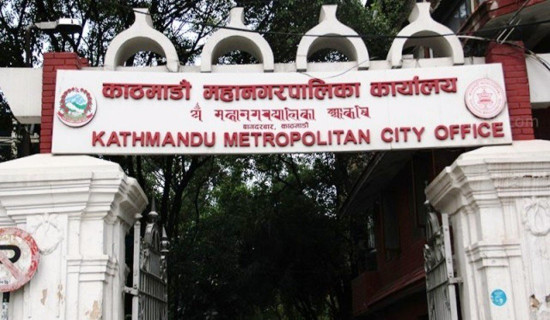- Tuesday, 24 February 2026
Dahal, Oli Rejoin Forces Congress Left High And Dry
Politics is a game of infinite possibilities. The present political scenario in Nepal attests to this saying. The new government headed by Maoist Chairman Pushpa Kamal Dahal Prachand with the support of the CPN-UML and other fringe parties has revealed yet another underlying truth: there are no permanent foes or friends in politics. Parties and leaders might support their bitter rivals whenever they sense a chance to gain power.
The Maoist Centre chair, who had been a vital component of the Nepali Congress-led governing coalition, wasted little time in abandoning the partnership and aligning forces with an arch foe—the CPN-UML—to create a new government under his premiership. Congress chief Sher Bahadur Deuba failed to demonstrate flexibility and honour the previous deal that he had made with Dahal shortly before the November 20 election, forcing the latter to quit the ruling coalition.
“Unexpected” decision
It’s no surprise that Dahal’s “unexpected” decision to ally with the UML left the Congress licking its wounds. The Congress president and his party confidants assumed the Maoist chair would never quit the alliance and join hands with the UML. They also believed that, as the biggest party with 89 MPs, they could form a government under Article 76 (3) even if they did not allow Dahal to become Prime Minister. They further claimed that since the Nepali Congress (NC) is the biggest party in the governing coalition, it must retain the prime ministerial and presidential roles. These claims proved fatal to the party and its president, whose refusal to allow Dahal to become prime minister for the first two years had sunk the Congress ship and sent the party to the opposition bench. The NC forfeited a “great opportunity” to send senior members to the roles of president and speaker, as well as the potential to build governments under its leadership in numerous provinces where it won the most seats.
The Nepali Congress and its leadership failed to see an important fact: the UML and its chair were searching for a chance to split the governing coalition after losing the November 20 election, while Dahal was desperate to become Prime Minister for the third time at any cost. Deuba’s suicidal act provided them with the chance they had been looking for. They dismantled the governing coalition in order to build the new alliance. Dahal and the UML boss have decided to serve as prime ministers alternately. Given the amount of hatred between Dahal and the UML head, KP Sharma Oli, the Congress chief’s strict attitude may have resulted from his belief that the Maoist leader could not split the governing coalition and would not join hands with the UML. However, the situation altered when the UML suggested making Dahal Prime Minister for the first half of the five-year term while agreeing to keep the roles of President and Speaker to itself.
Following the abrupt shift in the political landscape in which two communist parties rejoined forces to take total power, several congressmen including senior politician Ram Chandra Paudel among others chastised their president. Senior politician Ram Chandra Paudel and others rapped his party president for failing to honour the deal reached with Dahal, according to which the NC should have handed Dahal the first two years as prime minister.
For many, Deuba often cannot recognise the oncoming circumstances. During the 2017 election, then-Prime Minister Deuba failed to foresee the Maoists’ decision to create an electoral coalition with the UML.
The communist coalition then pushed Congress to a distant second-place finish in the election. Later, the Maoist-UML-formed Nepal Communist Party split, the creation of a new five-party coalition government under Deuba’s premiership, and contesting the November 20 election by creating an electoral alliance within the governing alliance all helped Congress emerge as the HoR’s biggest single party. Despite this, the Congress has now been obliged to play the role of an opposition party because of its inability to grasp Dahal’s mood in time.
Meanwhile, the Congress leadership’s hardline attitude benefited the UML, since it would now be a prominent participant in the Dahal-led administration. Besides claiming the presidency and speaker’s position, the party, which has 78 members in the House of Representatives, will have a major share of crucial cabinet posts.
Vital actor
Political analysts believe that many politically strange bedfellows have supported the Dahal-led government. Six parties (the UML (78 seats), the RPP (14), the Nepal Swatantra Party (20), the JSP (12), the Rastriya Janamat Party (6), and the Nepal Unmukti Party (4 seats) and three independent lawmakers have backed Dahal to become the Prime Minister. This may leave him struggling to address the desires and demands of these partners, who were elected on diverse slogans and who follow contrasting political and principles. While the RPP is pro-royalist and pro-Hindu, Dahal’s Maoist Centre is pro-republicanism and considers itself a vital actor in the creation of the current constitution, which transformed the nation into a federal republic state.
Rabi Lamichhane’s Rastriya Swatantra Party gained 20 seats in the election by aggressively criticising three old parties—the Maoist, the UML, and the Nepali Congress. Many believe that Lamichhane, who is facing a citizenship question that might jeopardise his political career, has backed the new government to avoid embarrassment. Other parties, such as Janamat and Unumukti, are ardent opponents of the national parties.
With such an alliance in place, political observers believe it would be difficult for Dahal to navigate the government’s day-to-day operations while adhering to the ideals and programmes for which we recognise the Maoist Centre. Meanwhile, the Nepali Congress, the largest party in the House, can do well if it establishes itself as an active opposition party in order to sail easily through the federal parliament. By performing well, the NC can improve its position in the next election.
(Upadhyay is Managing Editor of this daily)

















